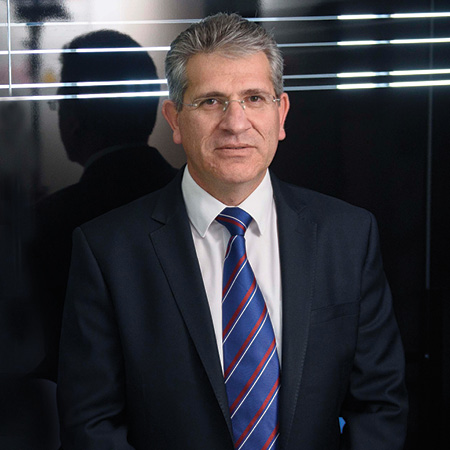After 14 consecutive quarters of contraction, the Cyprus economy expanded in the first quarter of 2015. It was only a 0.4% increase; however, it was a welcome sign for businesses in the region and pointed to potential sustainable growth. This proved to be a correct assumption as the economy expanded by another 1.2% and then 2.3% in the quarters which followed.
For USB Bank, a small but reputable player in the country’s financial services sector, the economic environment is still facing a number of challenges. And in the opinion of CEO Andreas Theodorides, a transformation of the industry is inevitable.
“I believe there is a need for consolidation and structural reforms, focusing on the core activities of the banking sector,” he says. “The Cyprus banking system has faced considerable difficulties over the last 3 years and it has already gone through restructuring and reforms in order to regain the lost confidence of the depositors and investors. Currently the situation is stabilising; however, challenges remain. We all need to address them. With the right approach, through continuous efforts, together with the economic recovery and the decrease of unemployment, we will be able to deal with them.
“Additionally, the banking system needs to find a way to focus on its main objectives such as servicing viable customers, giving new lending, and other initiatives that will improve the product offering of the sector. USB Bank is working on this direction, providing responsible banking to its clients and aiming to make complex banking simple. The biggest measure of success is people’s satisfaction levels and therefore USB Bank encourages, recognises and rewards innovation, quality, and commitment within the organisation.”
Andreas first joined the organisation in 1998 and was appointed to the CEO position in 2014. Working in various roles within the company exposed him to all of the different tasks, functions and challenges involved with a banking operation. Thus, his leadership style was able to evolve and grow into what it is today. One defining moment was in March 2013, when Cyprus went through a major financial crisis and Andreas had to lead USB Bank through it.
“That experience was quite unique for me,” Andreas recalls. “Always after a crisis you come out stronger, so having to deal with the depositors’ confidence in a severely affected banking sector was very challenging. Having to deal with the issue of recapitalisation of the banks in such a negative and unstable environment, and the increasing trend of customers being unable to meet their financial obligations, it was crucial to have self-discipline and to think outside the box.”



